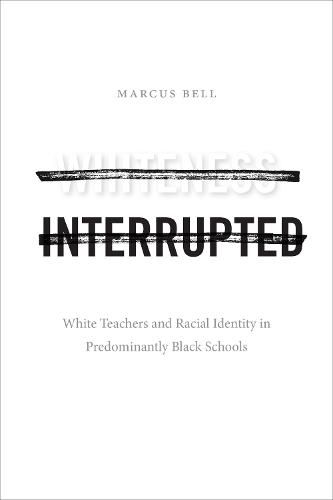Readings Newsletter
Become a Readings Member to make your shopping experience even easier.
Sign in or sign up for free!
You’re not far away from qualifying for FREE standard shipping within Australia
You’ve qualified for FREE standard shipping within Australia
The cart is loading…






In Whiteness Interrupted Marcus Bell presents a revealing portrait of white teachers in majority-black schools in which he examines the limitations of understandings of how white racial identity is formed. Through in-depth interviews with dozens of white teachers from a racially segregated, urban school district in Upstate New York, Bell outlines how whiteness is constructed based on localized interactions and takes a different form in predominantly black spaces. He finds that in response to racial stress in a difficult teaching environment, white teachers conceptualized whiteness as a stigmatized category predicated on white victimization. When discussing race outside majority-black spaces, Bell’s subjects characterized American society as postracial, in which race seldom affects outcomes. Conversely, in discussing their experiences within predominantly black spaces, they rejected the idea of white privilege, often angrily, and instead focused on what they saw as the racial privilege of blackness. Throughout, Bell underscores the significance of white victimization narratives in black spaces and their repercussions as the United States becomes a majority-minority society.
$9.00 standard shipping within Australia
FREE standard shipping within Australia for orders over $100.00
Express & International shipping calculated at checkout
In Whiteness Interrupted Marcus Bell presents a revealing portrait of white teachers in majority-black schools in which he examines the limitations of understandings of how white racial identity is formed. Through in-depth interviews with dozens of white teachers from a racially segregated, urban school district in Upstate New York, Bell outlines how whiteness is constructed based on localized interactions and takes a different form in predominantly black spaces. He finds that in response to racial stress in a difficult teaching environment, white teachers conceptualized whiteness as a stigmatized category predicated on white victimization. When discussing race outside majority-black spaces, Bell’s subjects characterized American society as postracial, in which race seldom affects outcomes. Conversely, in discussing their experiences within predominantly black spaces, they rejected the idea of white privilege, often angrily, and instead focused on what they saw as the racial privilege of blackness. Throughout, Bell underscores the significance of white victimization narratives in black spaces and their repercussions as the United States becomes a majority-minority society.